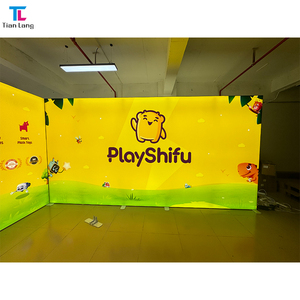Types of Event Organizers
In the dynamic world of event management, understanding the types of event organizers is crucial for both professionals and clients alike. Event organizers come in various forms, each specializing in different aspects of event planning and execution. Whether it’s a corporate gathering, a wedding, or a large-scale festival, knowing the distinctions between these types can greatly influence the success of the event.
- Corporate Event Organizers: Specializing in conferences, meetings, and corporate retreats, these organizers focus on aligning events with business goals. They often work closely with corporate clients to form strategies that include:
- Budget management
- Venue selection
- Logistics planning
- Wedding Planners: These professionals are experts in creating the perfect wedding day. They handle everything from venue decoration to catering and often work diligently to meet the couple's vision, so their services may include:
- Vendor coordination
- Guest management
- Timelines and scheduling
- Event Management Companies: These firms offer comprehensive services, working on diverse events, from galas to festivals. They not only manage the event itself but also cover areas such as:
- Marketing and promotions
- Ticketing solutions
- Post-event evaluations
- Nonprofit Event Organizers: Focusing on fundraising events and awareness campaigns, they help organizations maximize their impact through well-organized events. They often specialize in:
- Grant writing and fundraising strategies
- Audience engagement tactics
- Building community relations
Functions and Features of Event Organizers
The functions and features of event organizers can significantly affect the overall experience of the attendees and the success of an event. Each type of organizer brings specialized functions that ensure every aspect of the event runs smoothly.
- Strategic Planning: Event organizers develop a strategic approach, ensuring that all objectives align with the client's vision. Key features include:
- Goal setting and target audience identification
- Detailed project timelines
- Communication Skills: Effective communication is paramount. Organizers liaise with vendors, clients, and attendees, emphasizing positive relationships, which denotes feature specifics such as:
- Regular updates and follow-ups
- Conflict resolution strategies
- Logistical Coordination: From securing venues to managing transportation details, logistics is a core function. They handle:
- Ground operations and setup management
- Technical support and audiovisual arrangements
- Creativity and Innovation: A distinctive feature present in all proficient organizers is their ability to innovate. This includes:
- Unique themes and décor ideas
- Interactive programs and activities for engagement
How to Choose the Right Event Organizer
event organizer can make or break any event. Several factors can guide you through this significant decision-making process.
- Understand Your Needs: Clearly define the goals of your event. Is it social, corporate, or a celebration? This will help you target the specific type of organizer needed.
- Experience and Portfolio: Review the event organizer's previous projects. Look for relevant experience that aligns with your event type along with:
- A gallery of past events, showcasing their work
- Testimonials and case studies
- Budget Considerations: Be transparent about your budget from the outset. Different types of organizers generally operate within various price ranges, so ensure:
- They can provide a clear breakdown of costs
- There are no hidden fees
- Communication Style: Assess their responses during initial conversations. Ensure they are reliable and understand your vision. This includes:
- How they handle inquiries
- Their willingness to collaborate closely
Applications of Event Organizers
The applications of event organizers are vast and extend far beyond traditional gatherings. They play a pivotal role in orchestrating experiences that resonate deeply with attendees, ensuring memorable moments are created.
- Corporate Functions: From product launches to annual meetings, event organizers facilitate smooth experiences that enhance company image and engagement. Applications include:
- Professional networking opportunities
- Workshops and trainings
- Social Events: Birthdays, anniversaries, and reunions can benefit greatly from an organizer’s touch. They help to:
- Create personalized themes and atmospheres
- Manage guest lists and RSVPs efficiently
- Community Engagement: Organizers of public events like fairs and community services contribute to local outreach efforts. Applications in this domain often include:
- Fundraising drives and charity events
- Awareness campaigns on crucial social issues
- Virtual and Hybrid Events: In recent years, the growth of online platforms has enabled organizers to plan and execute virtual experiences. This includes:
- Webinars and live-streamed events
- Platforms for interactive participation





















































